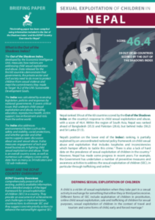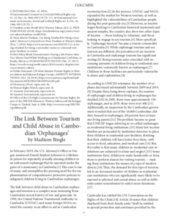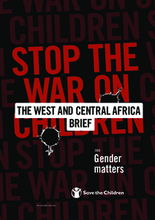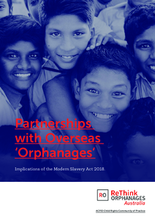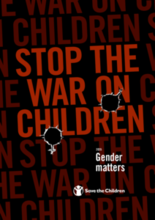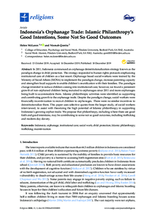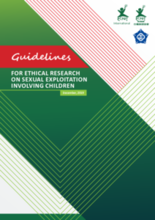Displaying 111 - 120 of 469
This briefing paper has been compiled using information included in the Out of the Shadows Index - which measures a country’s response to child sexual exploitation and abuse - and the ECPAT Country Overview for Nepal. The brief highlights the risk of sexual exploitation resulting from voluntourism practices, including volunteering in or visiting orphanages.
This column from Volume 23 of the American University Washington College of Law Human Rights Brief explores the links between child abuse in Cambodian orphanages and tourism.
This brief - a supplement to the Stop the War on Children 2020: Gender matters report - highlights the situation of children in conflict zones in West and Central Africa with a focus on gender.
This briefing note was developed by ReThink Orphanages Australia and the ACFID Child Rights Community of Practice to assist entities in Australia and abroad who have orphanages in their supply chains and/or operations to understand the implications of Australia’s Modern Slavery Act 2018.
This report from Save the Children Norway explores what child welfare institutions in Norway are doing to protect children in their care from the risk of online sexual offences.
This report delves into the differences between boys’ and girls’ experiences through a gendered analysis of the six grave violations of children in conflict, including recruitment of children by armed forces and child abduction. The report makes reference to the vulnerabilities faced by girl heads of household or unaccompanied and separated girls on the move and calls for interventions such as family tracing and reunification, the provision of alternative care for unaccompanied and separated children, and the release and reintegration of children associated with armed forces and armed groups.
This paper uses selective quotes from a larger study of social workers interviewed to assist with theorizing the high potential of Islamic philanthropy in supporting Indonesia’s growing orphan trade.
The following article reports upon recent research that explored the perceptions of professionals of the issues that affect the sexual and criminal exploitation of children in care, along with a discussion of the effectiveness of current responses to these issues and the challenges that professionals face.
The following article reports upon recent research, which explored the perceptions of professionals of the issues that affect the sexual and criminal exploitation of children in care, along with a discussion of the effectiveness of current responses to these issues and the challenges that professionals face.
Doing research involving children in the context of sexual exploitation raises a range of ethical questions and dilemmas. This document provides guidance for negotiating these ethical questions for a range of people engaged in field research (from lead researchers to data collectors).

